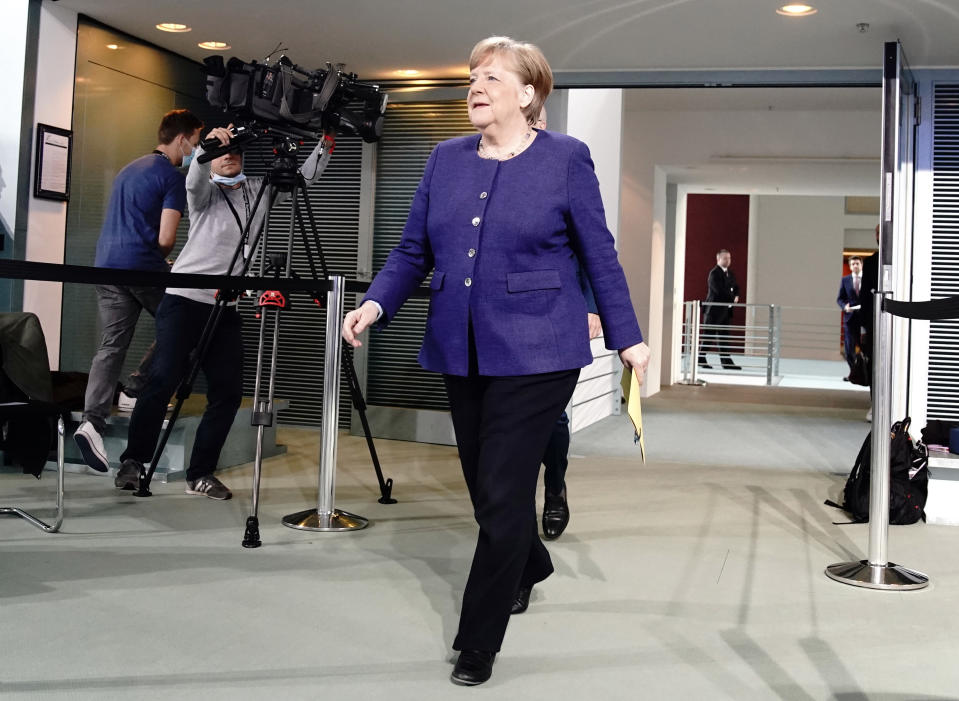Coronavirus: Germany to reopen museums, zoos, playgrounds, and churches

The government in Berlin and the heads of Germany’s 16 states today agreed to reopen playgrounds, churches, museums, exhibitions, botanical gardens and zoos, as the country takes another careful step towards easing its coronavirus lockdown.
“It is necessary to stay disciplined,” said chancellor Angela Merkel at a press conference in Berlin together with Bavarian state premier Markus Söder.
“Our health system, so often maligned, has so far passed this absolute stress test,” said Söder. “Germany has so far passed the stress test well.”
Germany started easing its lockdown last week, allowing smaller shops to open. Today’s announcement is the next phase, but big events are still banned until the end of August.
READ MORE: Coronavirus: Johnson will unveil 'comprehensive plan' to reopen economy next week
Merkel added that Germany had “succeeded so far” in slowing the rate of new infections, but noted that as long as there is still no vaccine against the virus, the goal and strategy remains to contain the pandemic to such an extent that the German health system remains able to treat those infected with COVID-19 appropriately.
Germany’s Robert Koch Institute (RKI) for disease control had reported an uptick in the transmission rate earlier this week — back up to 1.0 from around 0.7, where it had been for most of April — but as of today, the rate is back down to 0.76.
The R-number, or basic reproduction number, is a key measure to monitor how many people are infected by each infected person. The RKI has stressed all along that the rate must be kept under 1.0 to slow the outbreak and ensure that the country’s intensive care units are not overwhelmed.
According to Johns Hopkins University data, Germany currently has 161,552 confirmed cases of coronavirus, and 6,467 deaths from COVID-19.
With more than 10 million people in the country now on short-time work, and unemployment rising, state leaders are keen to get some businesses back open and re-boot their economies.
German economy minister Peter Altmaier said on Wednesday (29 April) that the country is facing its worst recession since the World War II. Presenting the spring forecast for 2020, Altmaier said GDP growth will shrink to minus 6.3% in 2020. In January, before the crisis hit, the estimate was for GDP growth of 1.1%.
READ MORE: Coronavirus: Germany braces for worst recession in post-war history
However, the rules on social contact and distancing will stay in place until at least 10 May. These stipulate that people must not gather in more than groups of two in public, and in general everyone should stay 1.5 metres apart. This can be a challenge with parks and streets becoming increasingly crowded now that most shops are open again. Face masks are compulsory in shops and on public transport.
The German government said earlier this week that all travel to other countries is banned until at least 14 June. The travel warning has been in place since 17 March, when Germany’s borders with Austria, Switzerland, Luxembourg, Poland, the Czech Republic and France were also closed to all but essential cargo and commuting for work.
Foreign minister Heiko Maas said that the government had repatriated a quarter of a million Germans since the beginning of the pandemic, and “would not do that again this summer.”
With school holidays in most states due to start from July, people are wondering if they will be able to plan any vacation at all. Merkel today declined to say whether or not it would be possible for Germans to travel to other European countries this summer.

 Yahoo Finance
Yahoo Finance 